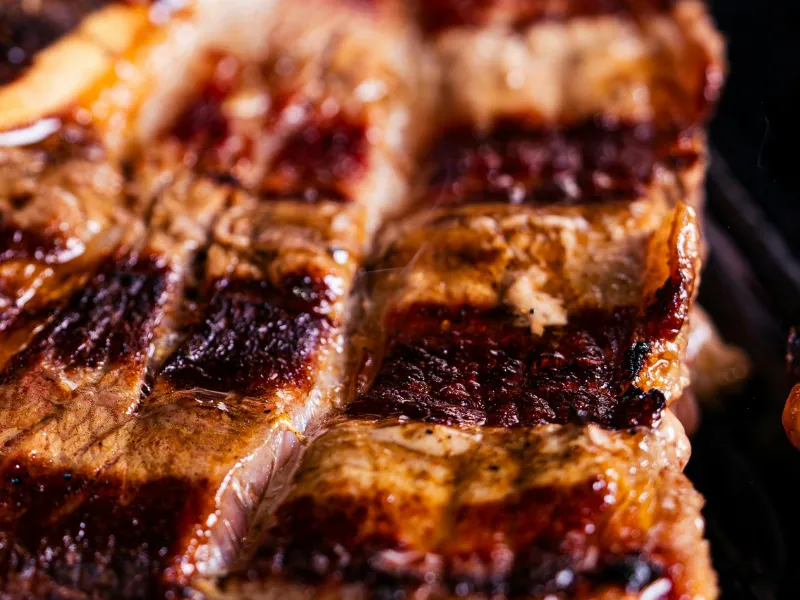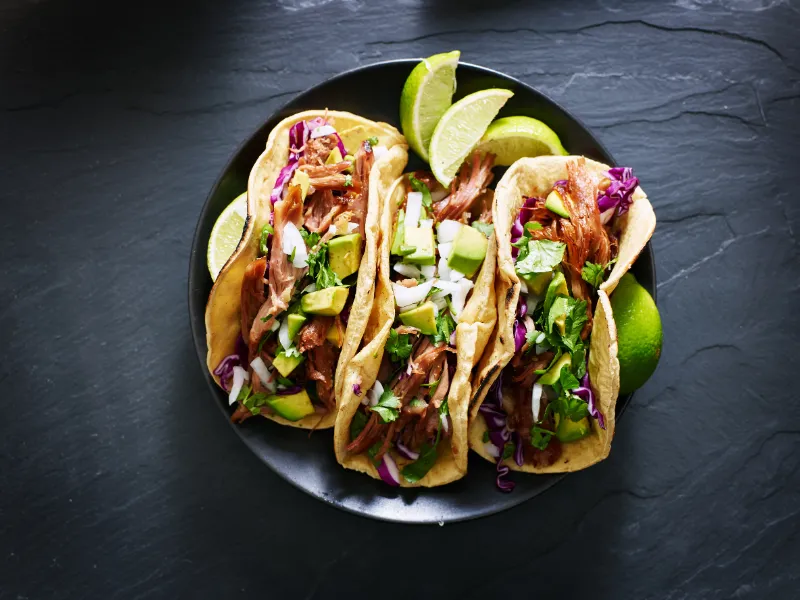Suppose you’ve ever drooled over a juicy, crispy taco and wondered what magic made that pork so irresistible. Welcome to the world of carnitas, the crown jewel of Michoacán’s cuisine. As an experienced food blogger who’s tasted my fair share of Mexican delicacies (and a few kitchen disasters), I can tell you carnitas is no ordinary pork dish. It’s the slow-cooked, flavour-packed star that turns any meal into a fiesta. But before you rush to the nearest taquería, let me walk you through why carnitas is truly something special and, brace yourself, the quirks and challenges behind making it perfectly.
Contents
- How Did Carnitas Even Become a Thing?
- Ingredients? Keep It Simple, But Don’t Skimp
- The Cooking Drama: Low. Slow. Chill.
- Why the Texture Actually Makes Carnitas Rock
- Carnitas in the Real World: Compared to Other Pork Dishes
- The Big Cultural Fiesta Around Carnitas
- The Not-so-Perfect Side of Carnitas
- Carnitas Goes Global: The Good, The Bad, And The Adapted
- Quick Feature Guide: Traditional vs. Modern Carnitas
- My Hot Take: Where to Find THE Carnitas
- Carnitas is More Than Just Pork
- Conclusion
How Did Carnitas Even Become a Thing?
You might think carnitas just showed up one day with a roadside taco stand, but nope. It’s got roots, deep, old-school roots. Michoacán, a region in Mexico, didn’t just invent carnitas to fill bellies (well, yes, but also). It’s a dish born outta necessity and love, where families would cook pork low and slow for hours, turning what could be a tough, boring cut into something that’s basically pork bliss.

I remember talking to an old Michoacán lady once, and she swore by the copper pots her grandma used. Copper pots! Sounds fancy, but these were just simple, sturdy pots humming away on an open fire. The magic happened in those puppies, slow-cooking pork in hot lard for hours until it was tender, but they got those irresistible crispy bits at the edges.
Ingredients? Keep It Simple, But Don’t Skimp
Alright, here’s the deal. Carnitas isn’t rocket science, but it’s also not throw-it-in-a-pan-and-call-it-done. Good pork shoulder (or leg) with a decent amount of fat is essential. Lean pork? No thanks. You’ll get dry meat, and no amount of salsa will save that sad taco.
And then there’s the lard. You might hear health nerds scream, but honestly, lard is where the flavour lives. It’s what makes the pork juicy inside and crispy outside. I get it, not exactly what your doctor would recommend for everyday eating, but hey, once in a while, live a little, right?
The Cooking Drama: Low. Slow. Chill.
Now, this is where people lose their minds or give up. Carnitas demands patience—like the kind of patience you’d have waiting for a text back from someone you really like (and no, microwaving won’t help).
You start by gently simmering the pork in lard, just barely bubbling. This renders all that beautiful fat and softens the meat to tender perfection. Then, in the last act, you crank up the heat and let those edges crisp up to golden-brown heaven.
I made the rookie mistake of skipping the crisping phase once, and it was a disaster. It was tasty, sure, but lacked that signature texture that makes carnitas, well… carnitas. Lesson learned.
Why the Texture Actually Makes Carnitas Rock
Let’s talk textures because this dish is basically a texture party:
- Soft, juicy, tender pork that’s so good it makes you sigh like you just found freedom
- Crunchy, crispy edges that add drama and contrast, you need these, or you missed the point entirely

Seriously, if you ever meet someone who doesn’t love the crispy bits, check if they’re human.
Carnitas in the Real World: Compared to Other Pork Dishes
Here’s a quick cheat-sheet because I know, as a blogger, I love clarity and love a good smackdown between food cousins:
Feature | Carnitas | Pulled Pork | Slow Cooker Carnitas |
Cooking Method | Long, slow fry in lard | Slow-smoked or baked | Slow cooker, less crispy |
Texture | Juicy inside, crunchy outside | Tender, uniform | Tender mostly, less crisp |
Flavor | Rich, porky, slightly sweet | Smoky, tangy | Mild, less complex |
Use | Tacos, tortas, nachos | Sandwiches, platters | Convenience, quick meals |
No, they’re not interchangeable—I’ve been burned plenty trying!
The Big Cultural Fiesta Around Carnitas
If you think carnitas is just ‘dinner’, you’re missing half the fun. In Michoacán, it’s a social event, a family gathering, a festival on a plate. I once wandered into a carnitas market in Uruapan (a city famed for this pork delight), where the smell alone could block out any bad day.
There, pork cooks in giant copper pots, surrounded by laughter, chatter, and people grabbing fresh tortillas as fast as the carnitas comes out. The art of Tortilla is a really amazing technique. It’s messy, loud, joyful, everything a food experience should be.
The Not-so-Perfect Side of Carnitas
Now, I’m all about carnitas, but let’s keep it real:
- It’s not the healthiest thing on your plate. Cooking in lard makes it rich, and by rich, I mean real heavy.
- Can you make it faster? Some try the slow cooker route. The result? Tasty, yes. But crispy? Not so much.
- It takes skill and attention. You gotta watch the pot like a hawk or risk dry or burnt meat.
Still, for many, those crispy, flavorful edges are absolutely worth the effort of standing over a pot for hours.
Carnitas Goes Global: The Good, The Bad, And The Adapted
With Mexican food’s rise in popularity, carnitas now pops up everywhere, from food trucks in Chicago to hipster taco spots in Berlin. The struggle? How to keep authenticity while juggling local preferences and health trends.
- Some swap lard for olive oil or vegetable oil, nice try, but the flavour is… different (and not better, if you ask me).
- Others add spices like smoked paprika or chipotle for a twist, which can be great, but it’s not the traditional carnitas I grew up craving.
- Slow cookers make carnitas accessible, but fail at that crucial crunch. Your call, convenience, or bona fide texture?
Quick Feature Guide: Traditional vs. Modern Carnitas
Aspect | Traditional Michoacán Carnitas | Modern Versions |
Fat Source | Pork lard | Veg oils/olive oil |
Cooking Style | Copper pot, low and slow | Oven or slow cooker |
Flavor | Deep, rich, slightly sweet | Varied, spiced, and often milder |
Texture | Crispy edges, juicy inside | Mostly tender, less crisp |
Time Commitment | Several hours require attention | Less time, more hands-off |
My Hot Take: Where to Find THE Carnitas
If you ever make it to Michoacán, do yourself a favour—ditch the tourist traps and hit the street stands in Uruapan or Zamora. There, you’ll find family-run spots with recipes that haven’t changed for generations. And trust me, there’s no substitute for the aroma, the atmosphere, and the real taste of authentic carnitas.

A little insider tip: always eat it with fresh, handmade corn tortillas. It’s like peanut butter and jelly—just meant to be.
Carnitas is More Than Just Pork
Carnitas is a delicious experiment in slow cooking that delivers a delightful ride from melt-in-your-mouth tender to satisfyingly crunchy. It’s a dish wrapped in heritage, community, and a touch of smoke and caramelised lard magic. For those willing to brave the fat and time, carnitas offers a deeply rewarding taste of Michoacán’s heart.
As a seasoned blogger who’s chronicled everything from street food gems to high cuisine, I can say: carnitas is a dish well worth your time, taste buds, and a little kitchen elbow grease. It’s messy, rich, and utterly satisfying, the kind of food that turns a meal into a memory.
If you want to see other Mexican dishes, such as Baja Med, sushi rolls, Chile en Nogada, and Pozole, they also tell the story of Mexican history. It takes time and a little extra effort, but the outcome is unforgettable: crispy, tender pork that makes any dinner a party. For more information, stay with us.
Conclusion
Carnitas is a tortilla with a rich history, a testament to patience, and a symbol of happiness. This dish demonstrates that basic ingredients, when cooked with love, can create something truly magical. It is a delicious Mexican food. You can find it in Michoacán’s sizzling copper pots and on street kiosks all over the world.
